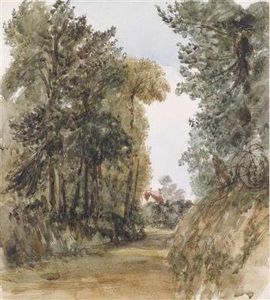Thomas Hollis Paintings
Thomas Hollis was an English political philosopher and patron of the arts rather than a conventional artist, known for his strong support of civil liberties and his influence on the dissemination of Whig history and ideas. Born in 1720 into a wealthy family that had made its fortune through trade, Hollis was particularly interested in the political theories that underpinned the development of British constitutional government.
Hollis's contributions to art and history were not through creating art himself but through his patronage and his extensive efforts to promote the ideas of liberty and republicanism. He was a significant benefactor to Harvard University, donating a number of books and works of art that reflected his political beliefs. These gifts were instrumental in shaping the library and the ideological underpinnings of one of America's oldest academic institutions.
Hollis never married nor sought public office. Instead, he dedicated his life and wealth to the cause of liberty. He commissioned works of art, including busts and portraits of thinkers he admired, such as John Locke and Isaac Newton. Through these commissions, he helped to create visual symbols of the ideas he cherished.
He was also involved in the design and distribution of political medals that celebrated key figures and events in the struggle for freedom and constitutional governance. These medals were circulated as a way to spread political messages, and Hollis's contribution to this art form was significant in the pre-revolutionary period, both in Britain and in the American colonies.
Thomas Hollis died on January 1, 1774. Despite the fact that he was not an artist in the traditional sense, his legacy lies in his enthusiastic promotion of the arts as a means to influence political thought and action. His extensive correspondence and the books he collected, which often included his annotations, provide valuable insights into the political and intellectual currents of his time.
